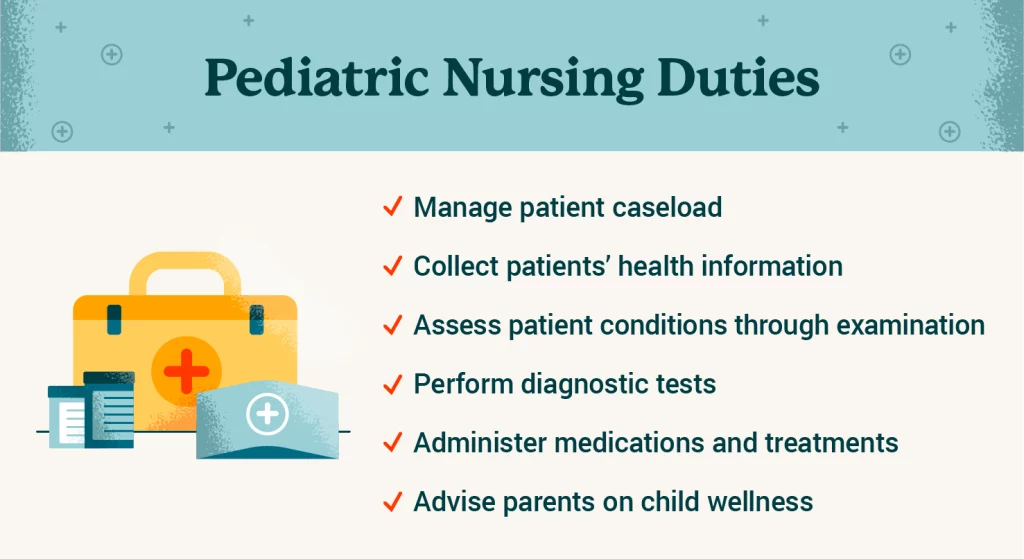They say that knowledge is power, and when it comes to the field of nursing, this adage holds true. As you consider pursuing a career in nursing, it is essential to understand the education requirements that will pave the way for your professional growth.
From the different types of nursing programs available to the entry requirements and the curriculum, there are various aspects to explore.
So, whether you are just beginning your journey or seeking to advance in your nursing career, this discussion will provide you with valuable insights and guidance.
Types of Nursing Programs
There are several types of nursing programs available to aspiring nurses.
One option is the Licensed Practical Nurse (LPN) program. LPN programs typically take about one year to complete and focus on the basic skills and knowledge needed to provide direct patient care.
Another option is the Associate Degree in Nursing (ADN) program. ADN programs usually take two to three years to complete and provide a more comprehensive education in nursing theory and practice. This program prepares students to become Registered Nurses (RNs) and allows for more career advancement opportunities.
A Bachelor of Science in Nursing (BSN) program is another option. BSN programs typically take four years to complete and provide a more in-depth education in nursing. This program offers a broader scope of practice and prepares nurses for leadership roles in healthcare.
Lastly, there are also accelerated nursing programs available for individuals who already have a bachelor’s degree in another field. These programs are designed to fast-track the nursing education process and typically take around 12 to 18 months to complete.
Associate Degree in Nursing (ADN)
If you’re considering a career in nursing, pursuing an Associate Degree in Nursing (ADN) is a practical and efficient way to gain the necessary knowledge and skills for entry-level nursing practice. An ADN program typically takes two to three years to complete and is offered at community colleges and technical schools. This degree is a popular choice among aspiring nurses because it provides a solid foundation in nursing theory and clinical practice.
During your ADN program, you’ll take courses in subjects such as anatomy, physiology, pharmacology, and nursing fundamentals. You’ll also have the opportunity to gain hands-on experience through clinical rotations in various healthcare settings, including hospitals and long-term care facilities. These practical experiences allow you to apply what you’ve learned in the classroom to real-life patient care situations.
Upon completion of your ADN program, you’ll be eligible to take the National Council Licensure Examination for Registered Nurses (NCLEX-RN). Passing this exam is necessary to obtain your nursing license and begin your career as a registered nurse. Many ADN graduates choose to start working in entry-level positions right away, while others may choose to continue their education and pursue a Bachelor of Science in Nursing (BSN) degree.
Bachelor of Science in Nursing (BSN)
Earning a Bachelor of Science in Nursing (BSN) is a crucial step towards advancing your nursing career and gaining a deeper understanding of nursing practice. A BSN program typically takes four years to complete and provides a comprehensive education in nursing theory, clinical skills, and evidence-based practice.
With a BSN, you’ll be equipped with the knowledge and skills needed to provide high-quality patient care, advocate for patients, and take on leadership roles within the healthcare system.
One of the main advantages of a BSN is the expanded career opportunities it offers. Many healthcare institutions, including hospitals and clinics, prefer to hire nurses with a bachelor’s degree. In fact, some institutions require a BSN as a minimum qualification for certain positions. By earning a BSN, you increase your chances of securing job opportunities and have the potential to earn a higher salary compared to nurses with an associate degree.
Moreover, a BSN provides a solid foundation for further specialization in nursing. If you’re interested in pursuing advanced practice nursing roles, such as nurse practitioner or nurse anesthetist, a BSN is typically a prerequisite for admission to graduate-level programs. Additionally, a BSN can serve as a stepping stone towards furthering your education and pursuing a master’s or doctoral degree in nursing.
Master of Science in Nursing (MSN)
With a Bachelor of Science in Nursing (BSN) as your foundation, you can now advance your nursing career by pursuing a Master of Science in Nursing (MSN). The MSN is a graduate degree that provides nurses with specialized knowledge and skills in a specific area of nursing practice. This degree opens up a wide range of career opportunities and allows you to take on advanced roles in healthcare.
One of the main benefits of obtaining an MSN is the increased earning potential. Nurses with an MSN typically earn higher salaries than those with just a BSN. In addition, many employers prefer to hire nurses with advanced degrees, as they’re seen as more knowledgeable and capable in their field.
Another advantage of pursuing an MSN is the opportunity to specialize in a specific area of nursing. There are numerous specializations available, including nurse practitioner, nurse educator, nurse administrator, and nurse informaticist, among others. By specializing in a particular area, you can develop expertise and make a greater impact in that field.
To pursue an MSN, you’ll need to meet certain requirements, such as holding a valid RN license and having a minimum GPA. The program typically takes two years to complete and includes coursework in advanced nursing theory, research, and clinical practice. Some programs may also require a thesis or capstone project.
Entry Requirements for Nursing Programs
Are you considering pursuing a nursing program?
Before you can begin your journey towards becoming a nurse, it’s important to understand the entry requirements for nursing programs. These requirements typically include program prerequisites and admission criteria that you must meet in order to be accepted into a nursing program.
Program Prerequisites
Before you can begin a nursing program, there are certain prerequisites that must be met. These requirements ensure that students have a strong foundation of knowledge and skills before entering the program.
The specific prerequisites may vary depending on the institution, but common requirements include a high school diploma or GED, completion of specific courses such as biology, chemistry, and math, and a minimum GPA.
Additionally, some programs may require students to pass a background check and drug screening. It’s important to carefully review the prerequisites for each program you’re interested in to ensure that you meet the requirements.
Admission Criteria
Now let’s shift our focus to the admission criteria for nursing programs, which outline the requirements students must meet in order to be considered for acceptance into these programs.
These criteria vary depending on the institution, but typically include a high school diploma or equivalent, completion of specific prerequisite courses such as biology and chemistry, and a minimum GPA requirement.
Additionally, many nursing programs require applicants to take and submit scores from standardized tests such as the SAT or ACT. Other factors that may be considered include letters of recommendation, personal statements, and interviews.
It’s important for prospective nursing students to carefully review the admission criteria for each program they’re interested in, as meeting these requirements is essential for gaining acceptance into a nursing program.
Curriculum and Coursework
The nursing education curriculum includes a comprehensive range of coursework to ensure you acquire the necessary knowledge and skills to excel in your profession.
The coursework is designed to provide you with a strong foundation in the basic sciences, such as anatomy, physiology, and microbiology. You’ll also study courses in pharmacology, pathophysiology, and health assessment. These courses will equip you with the knowledge to understand how diseases affect the human body and the medications used to treat them.
Additionally, you’ll take courses focused on nursing fundamentals, including patient care, communication skills, and ethical considerations. These courses will prepare you to provide compassionate and evidence-based care to patients in a variety of healthcare settings.
As you progress in your education, you’ll also have the opportunity to specialize in areas such as pediatrics, geriatrics, or critical care.
Clinical Experience and Internships
To gain practical skills and hands-on experience, nursing education programs incorporate clinical experience and internships into their curriculum. These opportunities allow you to apply the knowledge and theories learned in the classroom to real-life situations, preparing you for the challenges and demands of the nursing profession.
During clinical experience, you’ll work directly with patients under the supervision of experienced nurses and instructors. This immersive learning experience enables you to develop essential skills such as patient assessment, medication administration, wound care, and effective communication. You’ll learn to adapt to different healthcare settings, work collaboratively with a healthcare team, and prioritize patient care based on their needs.
Internships provide you with the chance to further refine your skills in a specific area of nursing, such as pediatrics, geriatrics, or critical care. These specialized experiences allow you to gain in-depth knowledge and expertise in a particular field, enhancing your employability and career prospects. Internships often involve longer durations, ranging from a few weeks to several months, giving you the opportunity to immerse yourself fully in the clinical setting.
Licensing and Certification Exams
After completing your nursing education and gaining the necessary clinical experience, the next step in your journey to becoming a nurse is to pass the licensing and certification exams. These exams are designed to assess your knowledge and skills in nursing practice, ensuring that you’re competent and safe to provide care to patients. The specific exams you’ll need to take depend on the type of nursing program you completed and the state in which you plan to practice.
One of the most common exams is the National Council Licensure Examination for Registered Nurses (NCLEX-RN). This exam is required for individuals seeking licensure as a registered nurse in the United States. It consists of multiple-choice questions that cover various aspects of nursing practice, including health promotion, disease prevention, and patient care management. To prepare for the NCLEX-RN, you can utilize study materials and practice tests provided by nursing organizations and review courses.
In addition to the NCLEX-RN, there are also specialty certification exams available for nurses who want to further enhance their credentials in a particular area of practice. These exams, such as the Certified Pediatric Nurse (CPN) or the Certified Nurse Midwife (CNM) exam, demonstrate your expertise and dedication to a specific field of nursing.
Passing the licensing and certification exams is an important milestone in your nursing career. It signifies that you have met the necessary requirements to practice as a nurse and that you possess the knowledge and skills needed to provide safe and effective care to patients. So, study hard, stay focused, and confidently take on the challenge of these exams, knowing that success will bring you one step closer to achieving your dream of becoming a nurse.
Frequently Asked Questions
What Are the Job Prospects for Nurses With Different Levels of Education?
You have asked about job prospects for nurses with different levels of education. The job prospects vary based on the level of education, with higher degrees generally leading to more opportunities and higher salaries.
How Long Does It Typically Take to Complete a Nursing Program at Each Level?
It typically takes 2-3 years for an associate’s degree, 4 years for a bachelor’s degree, and 2-3 years for a master’s degree in nursing.
Are There Any Online or Part-Time Nursing Programs Available?
Yes, there are online and part-time nursing programs available. These programs provide flexibility and convenience for those who need to balance their education with other responsibilities.
Can I Specialize in a Specific Area of Nursing During My Education?
Yes, you can specialize in a specific area of nursing during your education. Many nursing programs offer options for specialization, allowing you to focus on the area that interests you most.
What Are the Costs Associated With Nursing Education, Including Tuition, Books, and Other Fees?
You may be wondering about the costs of nursing education, such as tuition, books, and fees. It’s important to consider these expenses when planning for your education and future career as a nurse.
Conclusion
You’ve learned about the various types of nursing programs, including Associate Degree in Nursing (ADN), Bachelor of Science in Nursing (BSN), and Master of Science in Nursing (MSN).
You understand the entry requirements for these programs, the curriculum and coursework involved, as well as the importance of clinical experience and internships.
Remember, after completing your nursing education, you’ll need to pass licensing and certification exams to become a licensed nurse.
Keep pushing forward towards your nursing career!


